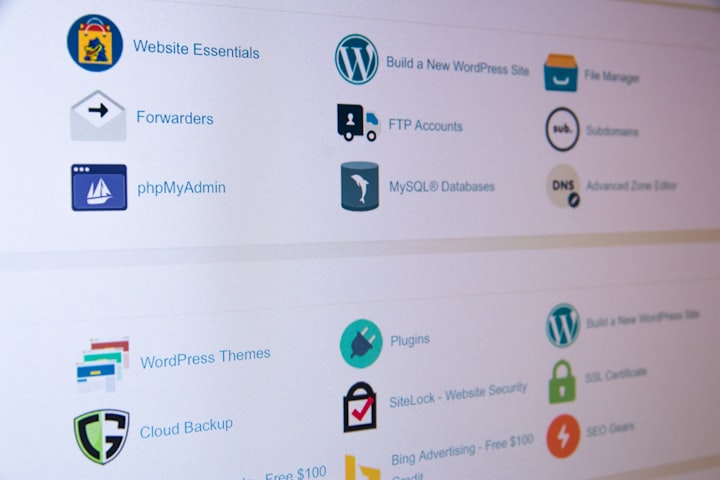The Impact Of The Web on Society: A Worldwide Perspective
The Era Of Internet

The Web or the Internet is the decisive technology of the knowledge Age. The web isn't a replacement technology: its ancestor, the Arpanet, was first deployed in 1969 (Abbate 1999). It had been within the 1990s when it had been privatized and released from the control of the U.S. Department of Commerce that it diffused round the world at extraordinary speed.

In 1996, the primary survey of Internet users counted about 40 million. In 2013 they were over 2.5 billion, with China accounting for the most significant number of Internet users.
The Expansion
Furthermore, a few times, the spread of the web was limited by the problem of the layout of land-based telecommunications infrastructure within the emerging countries. It has changed with the explosion of wireless communication within the early twenty-first century.
Indeed, in 1991, there were about 16 million subscribers of wireless devices within the world; in 2013, they're on the brink of 7 billion (on a planet of seven .7 billion human beings). We'll say that folks within the world are now almost entirely connected, albeit with exceptional levels of inequality in bandwidth, efficiency, and price.
One of these is that the increase of the "Me-centered society," marked by an increased specialization in individual growth and a decline in community understood in terms of space, work, family, and ascription generally. At the guts of those communication networks, the web ensures the assembly, distribution, and use of digitized information altogether formats.
Consistent with the study published by Martin Hilbert in Science,95 percent of all information existing within the planet is digitized, and most of it's accessible on the web and other computer networks.
Reaching Every Base
The commonality is formed through individuals' quests for unanimous people during a process that mixes online interaction with offline interaction, cyberspace, and thus the social space.
This global network of computer networks, primarily based nowadays on platforms of wireless telecommunication, provides the ever-present capacity of multimedia, reciprocated
communication within the chosen time, surpassing space. You can access networks from anywhere, through steps like remote desktop connections.
A Part Of Us
Globally, time spent on social networking sites surpassed time spent on e-mail in November 2007, and thus the number of social networking users surpassed the number of email users in July 2009. Today, social networking sites are the well-liked platforms for all kinds of activities, both business and private. Sociability has dramatically increased-but it is special quiet sociability.
JOIN OUR Digital Marketing FACEBOOK GROUP
Virtual Reality
Most Facebook users visit the situation daily, which they connect on multiple dimensions, but only on the dimensions they choose. The virtual life is becoming more social than physical presence, but it's less a virtuality, facilitating real-life work and real living. Academic research knows an excellent deal on the interaction between the web and society, on the idea of the methodologically rigorous inquiry conducted during a plurality of cultural and institutional contexts.
In part, because it comes into practice before scientists can assess its effects and implications, so there's always a niche between social change and its understanding. As an example, the media often report that excessive use of the web increases the danger of alienation, isolation, depression, and withdrawal from society. Available evidence shows that there's either no relationship or a positive cumulative relationship between Internet use and, therefore, the intensity of sociability. We observe that, overall, the more friendly people are, the more they use the online, the more they increase their friendliness online and offline, their civic engagement, and thus the intensity of family and friendship relationships, altogether cultures
Making Us And Breaking Us
Because people during this world are increasingly comfortable within the web, multidimensionality, marketers, government, and civil society are migrating enormously to the networks. People construct by themselves for the internet to realize knowledge to urge themselves. At root, social-networking entrepreneurs are selling spaces during which individuals can freely and autonomously create their lives.
Sites that decide to impede free communication are soon abandoned by many users in favor of friendlier and fewer restricted spaces. Internet use empowers people by increasing their feelings of security, personal freedom, and influence, all opinions that have a positive effect on happiness and private well-being. The consequence is particularly favorable for people with less income and who are less qualified, for people within the flourishing world, and girls.
Age doesn't affect the positive relationship; it's significant for all ages. Why women? Because they're in the middle of the network of their families, the internet helps them to arrange their lives. Also, it helps them to beat their isolation, particularly in patriarchal societies. The web also contributes to the increase in the culture of autonomy.
Networked social movements have been particularly active since 2010, notably within the Arab revolutions against dictatorships and, thus, the protests against the management of the financial crisis. Online and particularly wireless telecommunication has helped many social movements pose more of a challenge to state power.
Conclusion
The internet and thus the online constitute the technological infrastructure of the worldwide network society, and therefore the understanding of their logic could also be a critical field of research.
It's only scholarly research that can enable us to cut through the myths surrounding this data communication technology that's already a second skin for children, yet continues to feed the fears and thus the fantasies of those who are still responsible for a society that they barely understand.
Published at My Blog Click Here To Visit
About the Creator
Soumodeep Sikder
I Am a tech junkie who loves tinkering with computers, gadgets, and everything tech.
I love programming, blogging ,Travailing.
Founder Of SS Digital Blog
Founder Of Digital Marketing Journal






Comments
There are no comments for this story
Be the first to respond and start the conversation.